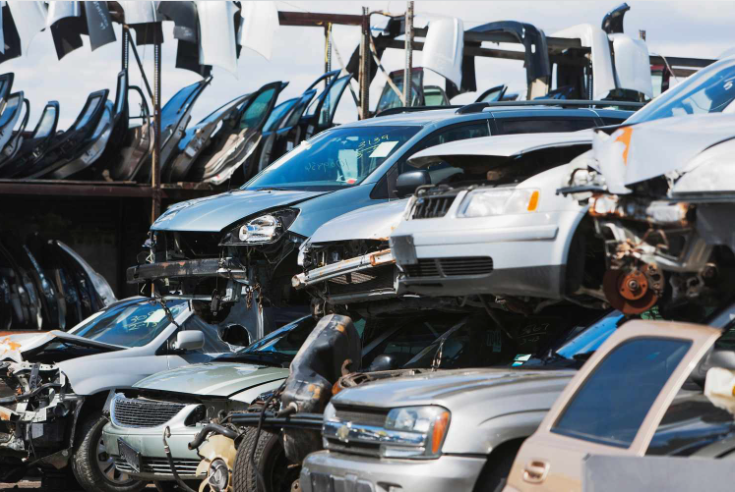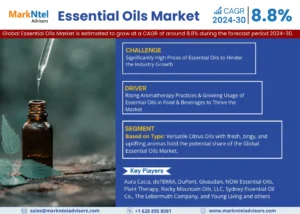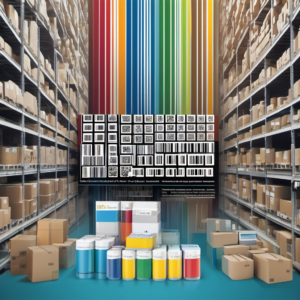
The Internet of Things (IoT) has revolutionized numerous industries, and the scrap car management and recycling sector is no exception. By leveraging IoT technologies, companies can streamline operations, enhance efficiency, and promote environmental sustainability. This article delves into the profound impact of IoT on scrap car management and recycling, highlighting key benefits and transformative changes in the industry.
Enhancing Efficiency in Scrap Car Management
IoT technologies play a pivotal role in enhancing the efficiency of scrap car management processes. Through the integration of sensors and data analytics, companies can track and monitor vehicles in real-time. This allows for more accurate inventory management and reduces the time and effort required for manual inspections.
For instance, companies offering “cash for scrap cars in Caboolture” can utilize IoT-enabled devices to track the location and condition of vehicles. This ensures that the scrap cars are promptly collected and transported to recycling facilities, minimizing delays and optimizing resource allocation. By leveraging IoT, businesses can streamline operations and provide a seamless experience for customers looking to sell their old vehicles.
Improved Vehicle Diagnostics and Assessment
One of the significant challenges in scrap car management is accurately assessing the condition of vehicles. Traditional methods often involve manual inspections, which can be time-consuming and prone to errors. However, IoT technologies enable automated and precise vehicle diagnostics.
By equipping vehicles with IoT sensors, companies can gather real-time data on various parameters such as engine health, battery status, and fluid levels. This data can be transmitted to a central system, allowing for comprehensive diagnostics and assessment. With accurate information at hand, companies offering “cash for scrap cars Caboolture” can provide fair and transparent valuations to customers. This not only builds trust but also ensures that vehicles are recycled in an environmentally responsible manner.
Optimizing Logistics and Transportation
Efficient logistics and transportation are crucial aspects of scrap car management. IoT technologies enable companies to optimize these processes by providing real-time visibility and control. Through GPS tracking and route optimization algorithms, companies can plan the most efficient routes for collecting and transporting scrap cars.
For example, a company offering “cash for scrap cars Caboolture” can use IoT-enabled tracking devices to monitor the location and movement of their collection vehicles. This allows for dynamic route adjustments based on traffic conditions and pickup schedules. By minimizing travel time and fuel consumption, companies can reduce operational costs and enhance overall efficiency.
Ensuring Compliance with Environmental Regulations
The scrap car management and recycling industry is subject to stringent environmental regulations. IoT technologies can help companies ensure compliance by providing accurate data and facilitating regulatory reporting. By monitoring and recording key environmental metrics, such as emissions and waste disposal, companies can demonstrate their commitment to sustainability.
For instance, companies offering “cash for scrap cars Caboolture” can utilize IoT-enabled sensors to monitor emissions from their collection vehicles. This data can be used to generate compliance reports and demonstrate adherence to environmental standards. By leveraging IoT, companies can not only meet regulatory requirements but also showcase their commitment to environmentally responsible practices.
Enhancing Safety and Security
Safety and security are paramount in the scrap car management and recycling industry. IoT technologies can significantly enhance these aspects by providing real-time monitoring and alerts. Through the integration of IoT-enabled cameras and sensors, companies can ensure the safety of their facilities and personnel.
For example, a company offering “unwanted car removal services sunshine coast” can install IoT-enabled cameras at their collection and recycling centers. These cameras can provide real-time video feeds and detect any unauthorized access or suspicious activities. Additionally, IoT sensors can monitor environmental conditions, such as temperature and humidity, to prevent accidents and ensure the safe storage of hazardous materials. By leveraging IoT, companies can create a safer and more secure working environment.
Enabling Predictive Maintenance
Predictive maintenance is a game-changer in the scrap car management and recycling industry. By leveraging IoT technologies, companies can proactively monitor the condition of their equipment and vehicles, enabling timely maintenance and reducing downtime.
For instance, companies offering “cash for scrap cars Caboolture” can install IoT sensors on their collection vehicles to monitor key parameters such as engine performance and tire pressure. This data can be analyzed to identify potential issues and schedule maintenance before breakdowns occur. By adopting a predictive maintenance approach, companies can optimize the lifespan of their equipment, minimize repair costs, and ensure uninterrupted operations.
Facilitating Data-Driven Decision Making
IoT technologies generate vast amounts of data that can be leveraged for data-driven decision making. By analyzing this data, companies can gain valuable insights and make informed decisions to optimize their operations.
For example, a company offering “cash for scrap cars Caboolture” can analyze data from IoT sensors to identify patterns and trends in vehicle conditions. This information can be used to optimize pricing strategies, improve customer service, and streamline inventory management. By leveraging IoT-generated data, companies can stay ahead of the competition and continuously improve their processes.
Enhancing Customer Experience
In the highly competitive scrap car management and recycling industry, providing an exceptional customer experience is crucial. IoT technologies can significantly enhance the customer journey by offering convenience, transparency, and personalized services.
For instance, companies offering “cash for scrap cars Caboolture” can provide customers with IoT-enabled apps that allow them to track the status of their vehicle pickup and receive real-time updates. Additionally, IoT sensors can be used to provide accurate and transparent valuations, ensuring that customers receive fair compensation for their scrap cars. By leveraging IoT, companies can build trust, enhance customer satisfaction, and foster long-term relationships.
Promoting Sustainable Recycling Practices
Sustainability is a key focus in the scrap car management and recycling industry. IoT technologies can play a vital role in promoting sustainable practices by optimizing resource utilization and minimizing waste.
For example, companies offering “cash for scrap cars Caboolture” can use IoT-enabled sensors to monitor the recycling process and identify areas for improvement. By analyzing data on material usage, energy consumption, and waste generation, companies can implement strategies to minimize their environmental footprint. IoT technologies enable companies to adopt a more sustainable approach to scrap car recycling, contributing to a greener and more circular economy.
Reducing Costs and Increasing Profitability
IoT technologies offer significant cost-saving opportunities for the scrap car management and recycling industry. By optimizing processes, reducing downtime, and enhancing efficiency, companies can achieve substantial cost reductions and increase profitability.
For instance, companies offering “cash for scrap cars Caboolture” can leverage IoT-enabled predictive maintenance to minimize repair costs and avoid unexpected breakdowns. Additionally, IoT technologies enable better inventory management, reducing the need for excessive storage and associated costs. By implementing IoT solutions, companies can achieve higher operational efficiency and improve their bottom line.
Future Trends and Innovations
The impact of IoT on scrap car management and recycling is continuously evolving, with new trends and innovations on the horizon. As technology advances, companies can expect even greater benefits and transformative changes in the industry.
One emerging trend is the integration of IoT with blockchain technology. This combination can enhance transparency, traceability, and accountability in the scrap car management process. By leveraging blockchain, companies offering “cash for scrap cars Caboolture” can create a secure and immutable record of each vehicle’s lifecycle, from collection to recycling. This not only ensures compliance but also provides customers with a transparent and trustworthy experience.
Conclusion
The integration of IoT technologies in scrap car management and recycling has revolutionized the industry, offering numerous benefits and transformative changes. From enhancing efficiency and optimizing logistics to promoting sustainability and improving customer experience, IoT has become a game-changer. Companies offering “cash for scrap cars Caboolture” can leverage IoT solutions to streamline operations, reduce costs, and achieve higher profitability. As technology continues to advance, the future holds even greater potential for IoT to shape the scrap car management and recycling industry, creating a more efficient, sustainable, and customer-centric ecosystem.



























One thought on “The Impact of IoT on Scrap Car Management and Recycling”